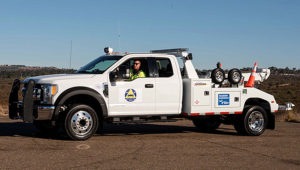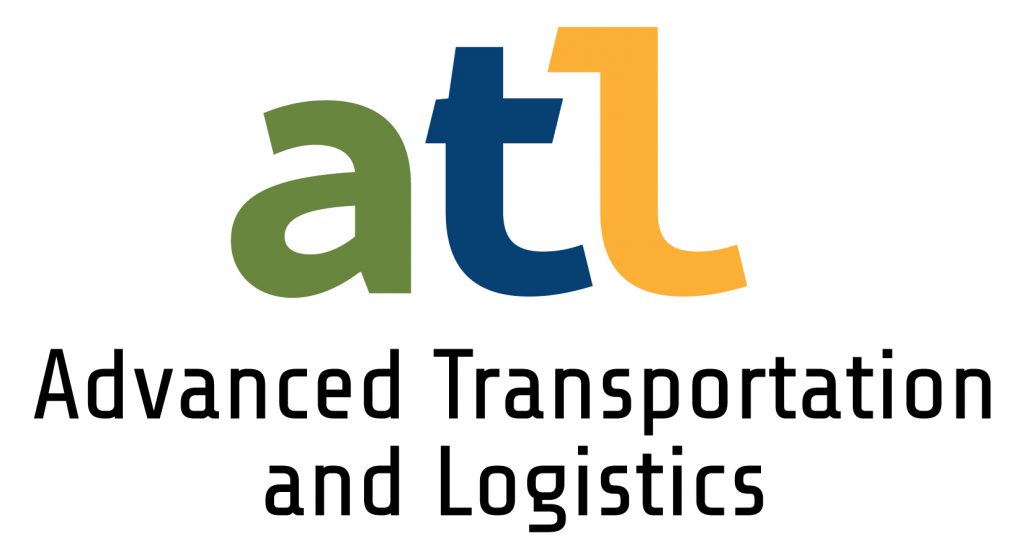
Photo credit: Freeway Service Patrol
More than 50 tow truck drivers and other personnel from the California Freeway Service Patrol (FSP) gathered together in March for training on how to assist electric and alternative fuel vehicles in their work.
The FSP is a joint program provided by the California Department of Transportation, California Highway Patrol (CHP), and local transportation agencies. It is a free service of privately-owned tow trucks that patrol designated routes on busy freeways and address incidents that cause congestion.
The training provided tow truck operators with an overview of how servicing alternative fuel vehicles differs from assisting gasoline-powered cars and trucks. It covered how to jumpstart electric and hybrid vehicles, how to move them if they’re blocking traffic, and other roadside assistance tips.
A representative from the CHP gave an introduction, which was followed by a lecture from instructor Marty Kennedy from Miramar’s Advanced Transportation Technology and Energy Program. To augment the presentation, the Center for Sustainable Energy and the San Diego Regional Planning Agency (SANDAG) partnered with local companies to provide some demo vehicles.
Jon Kropp, Advanced Transportation and Logistics (ATL) Deputy Sector Navigator in the San Diego Region, worked with SANDAG and the Center for Sustainable Energy to organize the training. He used grant funds to pay for the instruction and development, including curriculum updates.
“Faculty at Miramar college and the ATL will be working with SANDAG to update electric vehicle curriculum on the safety aspects of electric vehicles and their handling,” Kropp said. “With more than 30,000 electric vehicles on the roads, it’s important to continue to provide safety seminars on the technology.”
Jeff Hoyos, Regional Energy and Climate Planner for SANDAG, said the training was well received and valuable for the drivers who assistant motorists across the state every day.
“This training provided the SANDAG 511 tow truck drivers with current safety considerations when towing electric vehicles (EV),” Hoyos said. “This is valuable as it educates the 511 tow truck drivers how to get EVs safely off the road which helps reduce traffic congestion and in turn reduces GHG emissions throughout the region.”


